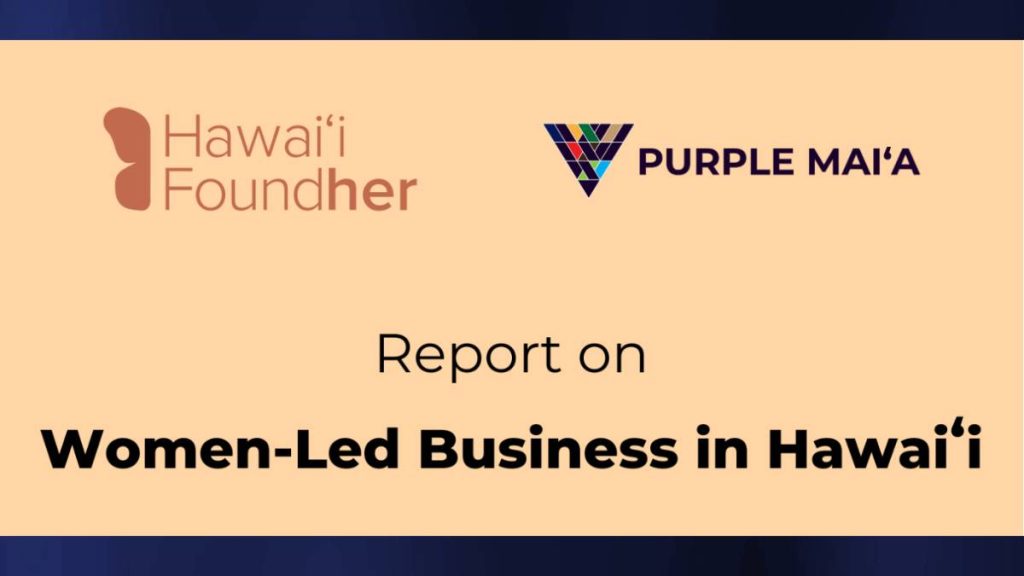NHAAPI women entrepreneurs in Hawaiʻi are driven by values, but need funding

A new report created by Hawaiʻi FoundHer, a local women’s accelerator, has found that access to funding is the biggest challenge faced by Native Hawaiian, Asian American and Pacific Islander (NHAAPI) women founders of small businesses in Hawaiʻi.
The report is based on applications submitted by 343 women from five different Hawaiian islands in the summers of 2021 and 2022. Applicants were seeking admission to the Hawaiʻi FoundHer accelerator program.
“We decided to analyze the data we had from these applications because we’ve noticed a startling lack of data specifically on women entrepreneurs and especially women entrepreneurs who are Native Hawaiian, Pacific Islander, and/or Asian American in Hawaiʻi,” said Nicole Brodie, lead author of the report and Director of Operations at Purple Maiʻa Foundation, the nonprofit that operates the Hawaiʻi FoundHer program.
Funding was what women entrepreneurs cited most often in an open-ended question about the challenges they face. Also, 93% expressed interest in grants as a service on offer from the accelerator.
Also of note was that 60% of applicants described their businesses as rooted in personal or cultural values or having a social or environmental impact component.
“Even with the limitation of our data being from program applicants and not a general survey, we thought that the lack of data about this population made it worth sharing so that the funding and business development ecosystem in Hawaiʻi can do better to serve women entrepreneurs,” Brodie explained, adding, “and we are planning on more efforts to gather broader data in the future.”
Most immediately, FoundHer has put out a survey of Native Hawaiian businesses in Hawaiʻi, which can be accessed here: Any and all Native Hawaiian owned businesses are encouraged to participate.
A surprising finding of FoundHer’s report was that only 32% of applicants expressed interest in childcare and eldercare support, one of the unique program offerings of the FoundHer program. However, 46% of women who described their business as in the “idea” stage were interested in childcare, compared to 26% for those who described their business as “in market.”
“We speculate that as women-owned businesses develop, they have either solved the issue of elder and child care, or it becomes a barrier that prevents them from continuing their business journey, and caretakers get weeded out from entrepreneurship,” said Brodie.
Sponsored Content
Comments





_1770333123096.webp)


